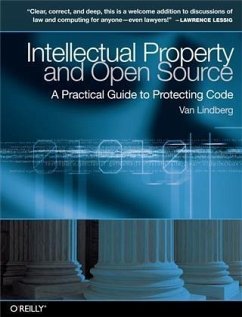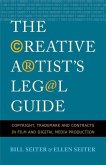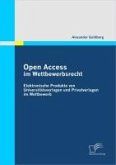"e;Clear, correct, and deep, this is a welcome addition to discussions of law and computing for anyone -- even lawyers!"e;-- Lawrence Lessig, Professor of Law at Stanford Law School and founder of the Stanford Center for Internet and SocietyIf you work in information technology, intellectual property is central to your job -- but dealing with the complexities of the legal system can be mind-boggling. This book is for anyone who wants to understand how the legal system deals with intellectual property rights for code and other content. You'll get a clear look at intellectual property issues from a developer's point of view, including practical advice about situations you're likely to encounter.Written by an intellectual property attorney who is also a programmer, Intellectual Property and Open Source helps you understand patents, copyrights, trademarks, trade secrets, and licenses, with special focus on the issues surrounding open source development and the GPL. This book answers questions such as:How do open source and intellectual property work together?What are the most important intellectual property-related issues when starting a business or open source project?How should you handle copyright, licensing and other issues when accepting a patch from another developer?How can you pursue your own ideas while working for someone else?What parts of a patent should be reviewed to see if it applies to your work?When is your idea a trade secret?How can you reverse engineer a product without getting into trouble?What should you think about when choosing an open source license for your project?Most legal sources are too scattered, too arcane, and too hard to read. Intellectual Property and Open Source is a friendly, easy-to-follow overview of the law that programmers, system administrators, graphic designers, and many others will find essential.
Dieser Download kann aus rechtlichen Gründen nur mit Rechnungsadresse in A, B, BG, CY, CZ, D, DK, EW, E, FIN, F, GR, HR, H, IRL, I, LT, L, LR, M, NL, PL, P, R, S, SLO, SK ausgeliefert werden.









